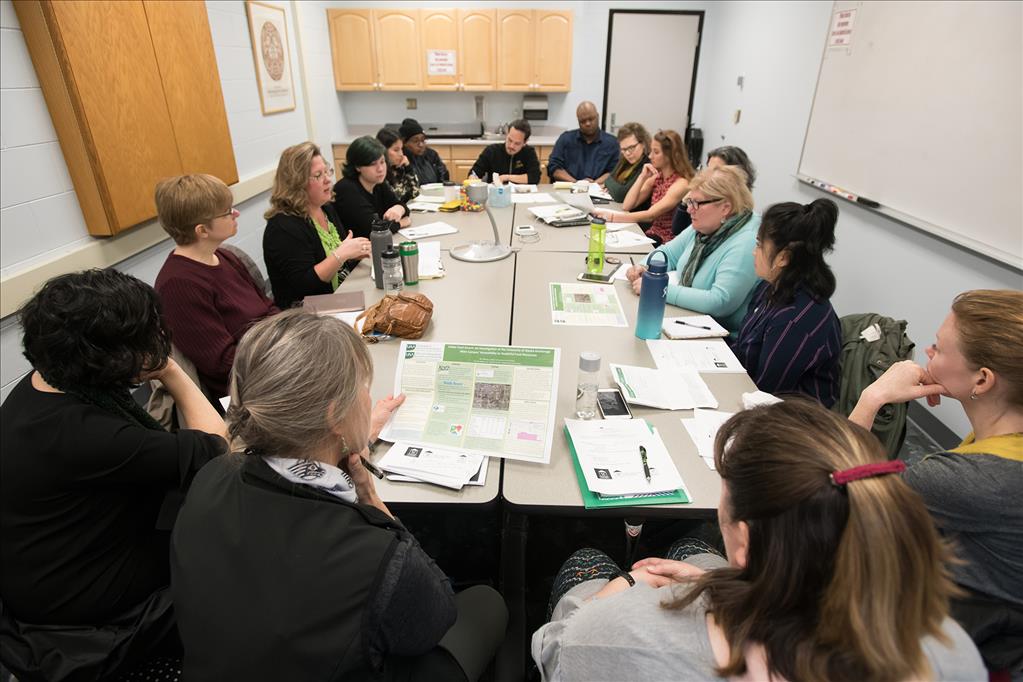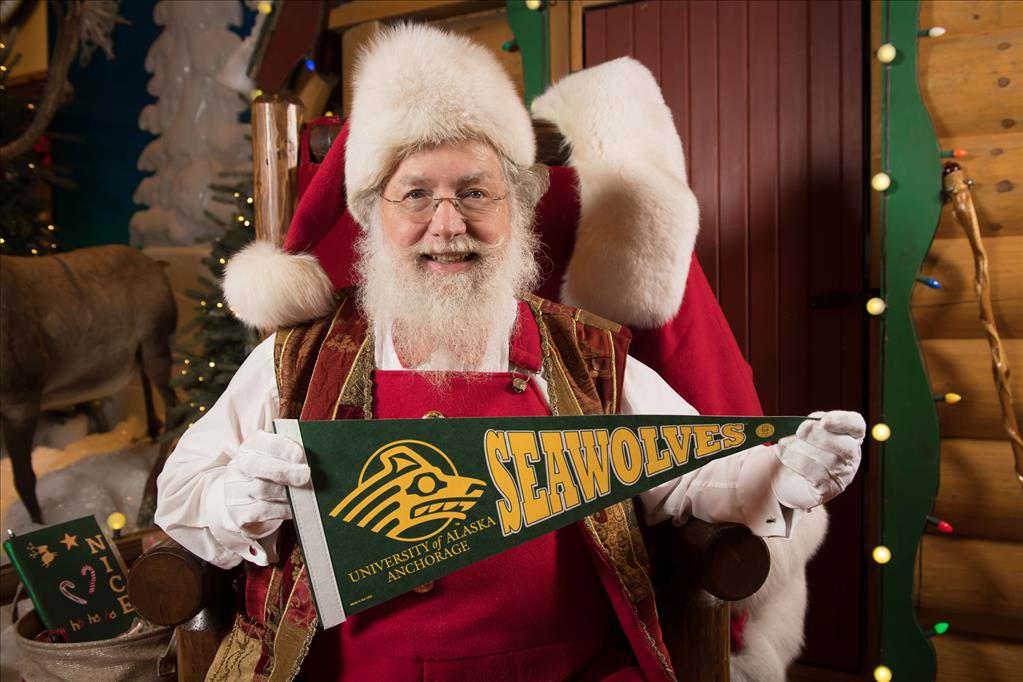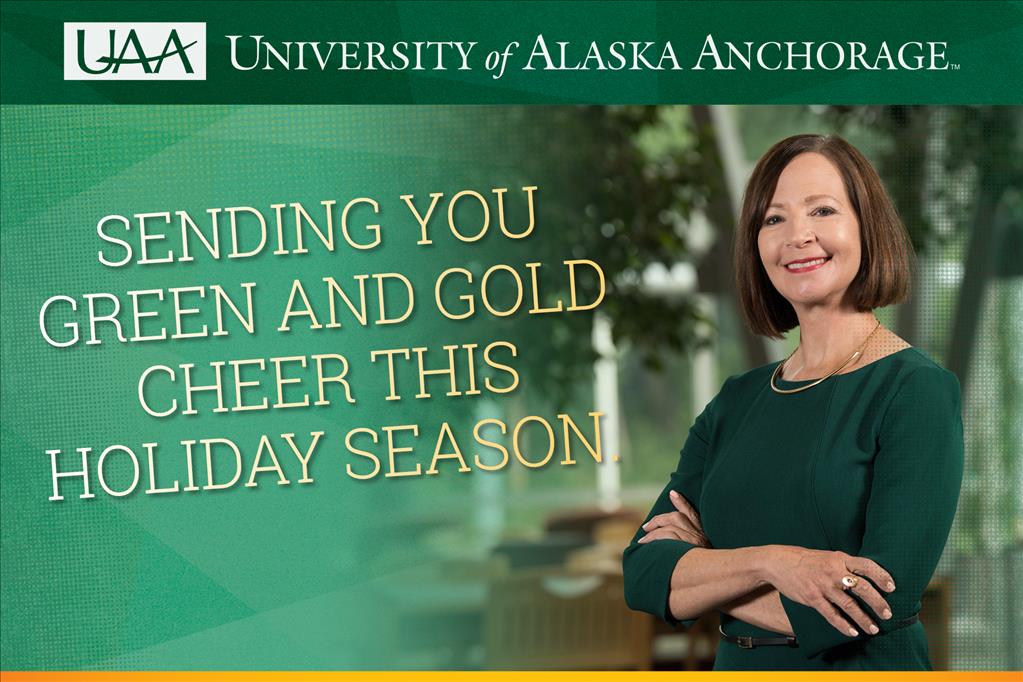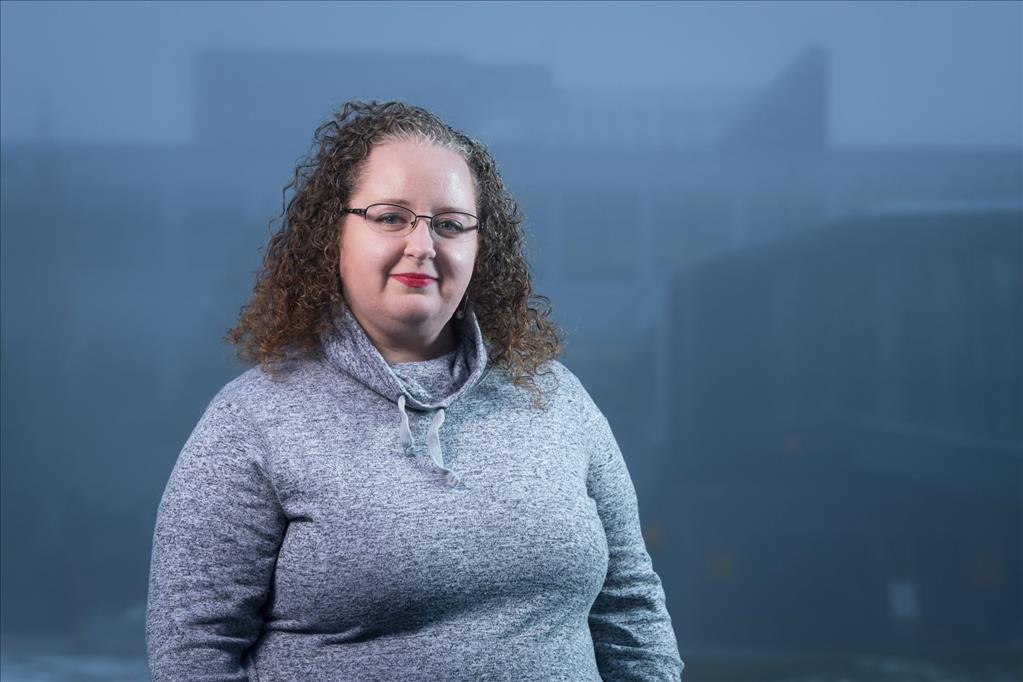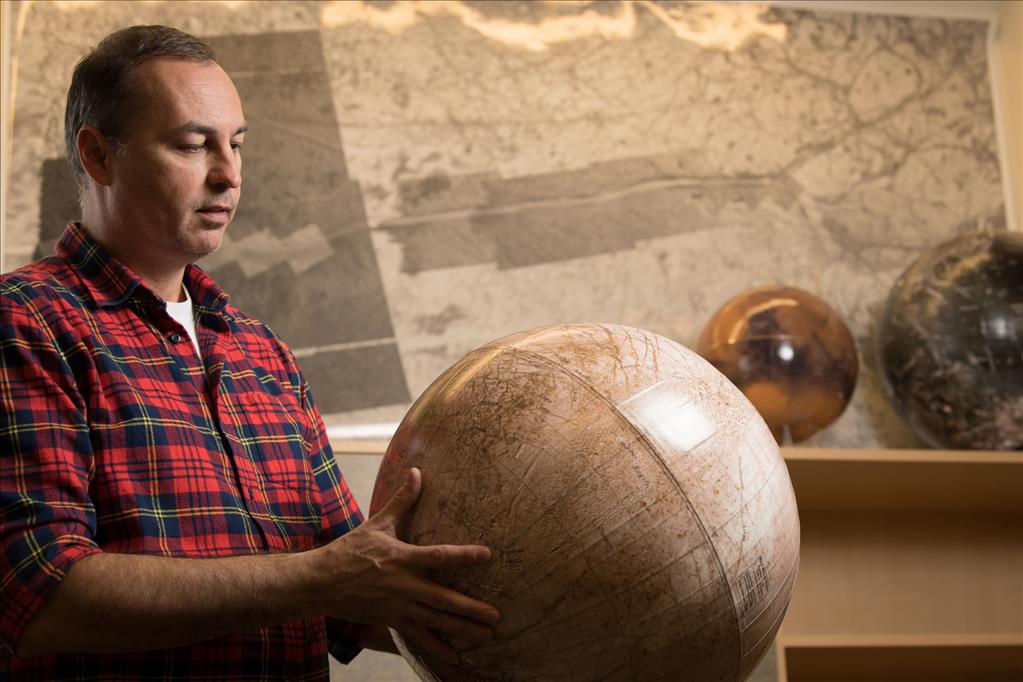Want to learn how to be a nurse? There’s a summer camp for that.
by cmmyers |
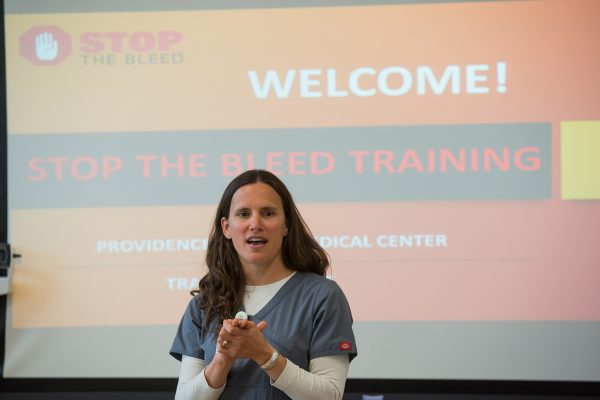
Recruitment and Retention of Alaska Natives into Nursing (RRANN) Program Director Annette Rearden introduces trauma nurses from Providence Alaska Hospital, who came to UAA give Nursing Camp students "Stop the Bleed" training. (Photo by James Evans/ University of Alaska Anchorage)
School is out for the summer, but camp is definitely in - especially for the 15 teens who attended the Recruiting and Retention of Alaska Natives into Nursing's (RRANN) Nursing Camp earlier this month. Teens ages 16-19 from all over the state gathered for three days of hands-on activities and exploration to experience what a potential career in nursing or health care could be like.
"We really believe it to be, number one, fun, and two, hands-on," said Annette Rearden, associate professor in UAA's nursing school and RRANN's program coordinator. The focus of the camp is to teach students basic nursing skills from hand hygiene and standards of care to more complicated tasks like injections, where students practice administering shots on fat pads, as well as basic first aid.
"We also want to incorporate skills that students can bring back to their communities," Rearden said. "Especially if they're from the rural areas, their access to hospitals might be limited, or if they're out in the field hunting or berry picking, we try to teach them things they can pass on."
Rearden said campers also experienced the simulation lab, practicing scenarios the university's nursing students would be subject to, but on a smaller scale. The camp also collaborated with community partners, like Stop the Bleed, a partnership through Providence Alaska, to teach students how to tie a tourniquet and to stop bleeding in an emergency situation, and Life Med Alaska, where paramedics and Emergency Medical Technicians (EMTs) spoke to students about a career in health care and provided campers with an ambulance tour.
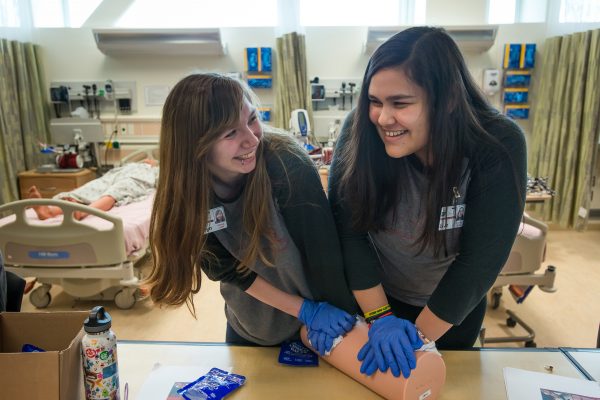
Raevyn Martin from Palmer High School (left) and Li Jo Wilson from Thunder Mountain High School in Juneau (right), practice applying pressure during a "Stop the Bleed" course. (Photo by James Evans/ University of Alaska Anchorage)
"We sell nursing, but we also try to sell allied health because not everyone will fall into a nursing track," Rearden said. "If they live in rural communities, maybe an EMT or paramedic might be a better route for them. We try to draw in a lot of community partnerships and experiences, as well as in-house academic experiences."
Additionally, the camp program also focuses on helping campers with preparing for the next step after high school, whether they're looking to pursue a bachelor's degree of nursing or head into some other type of allied health program.
"We focus on academic preparedness, advising, financial aid and prepping," Rearden said. She explained that they talk with the students about what type of classes are needed, the financial cost and how to obtain scholarships for nursing and health care programs. She said this year they brought in nurses from the Southcentral Foundation's Alaska Native American Indian Organization, which helped host a panel with UAA nursing students on how they prepared for, applied, were accepted into a nursing program and then went on to obtain jobs in the workforce.
Creating the camp
Rearden said the first camp was hosted about five years ago in Bethel when she and retired faculty member Mary Weiss created the camp. Weiss was teaching in Bethel at the time and Rearden had strong community ties from her early years as a nurse. That first year, few students attended the camp, but Weiss and Rearden decided the following year to give it one more shot and had greater success. Then, due to unforeseen circumstances and Weiss's retirement, the camp took a bit of a hiatus.
When Rearden moved into her position as RRANN's program coordinator, she revived the idea of the nursing camp, changing the location to Anchorage, and hosted the first one last summer.
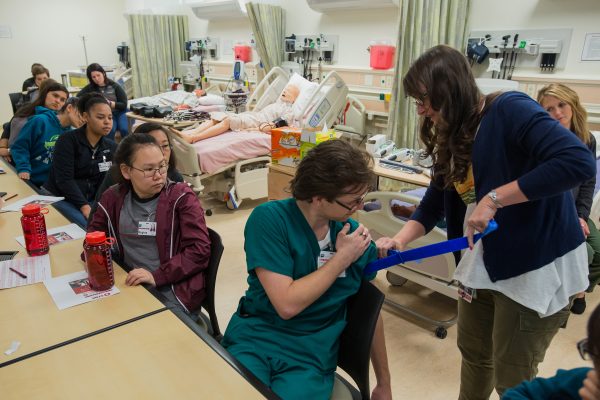
Providence trauma nurse Krista Guzman demonstrates the use of a tourniquet while teaching a "Stop the Bleed" course. (Photo by James Evans / University of Alaska Anchorage)
"Our goal is to host an Anchorage camp every year to hit the urban areas and use our beautiful urban facilities, and then to rotate through a rural site every year, she said." She said the demand from communities from Juneau to Nome has been high and much of the success of the rural camp hinges on securing funding. "These communities want this type of model and now that we've done it a couple of times, I feel like we're really starting to dial in and hit the sweet spot in terms of what students like, what they need and what is fun."
Volunteers please!
Rearden said preparing for the camp each summer is an incredible amount of work, taking hours of planning curriculum, activities, collaborating with community partners and getting the word out statewide to high schools. She said most students come to nursing camp by word-of-mouth and that some of the school districts in more rural areas pay the way for the students to attend the camp. Additionally, Rearden says she also asks for nursing school students to volunteer at the summer camp, which she says is a great opportunity for current nursing students to practice the skills they've learned throughout the school year and be on the other side of the desk, so to speak.
"Professor Annette Rearden sent out an email to all of the nursing students - and since I was still included as a nursing student - I caught drift of her email and thought that this was something I'd love to be a part of," said Amanda Bradley, who recently graduated from UAA's nursing school in May.
"This was the first time I ever introduced myself to anyone as a nurse, which was kind of cool for me," Bradley said. She enjoyed working with all the students, but felt she could especially offer advice and mentorship to the high school juniors and seniors in the group, who were looking at their college options. "It was pretty cool to be a part of those first steps for them."
"With the students, we got to do a lot of the things we did our first semester of nursing school," Bradley said. She easily connected with the students, understanding their trepidation in being put in real-world situations. She enjoyed being the one to offer the academic and emotional guidance she experienced as a student. "Having gone through this before, I remember how scary it was to go into a sim-lab with mannequins and have to pretend like it's a real person - it's really hard and really scary."
Bradley said that RRANN's nursing camp is an incredible opportunity and wishes a program like this had been available to her early on. She felt it would have saved her a lot of time in discovering what her passion is.
"We're alway going to need more nurses," said Bradley. "I think if there had been an opportunity for me like this when I was in high school, I would have gotten into health care a lot sooner." Bradley graduated from high school in 2006, but like many young adults took a winding road before landing on her nursing career. She said the RRANN nursing camp not only helped the teens get their feet wet in the nursing and health care world, but also offered valuable resources on how to get the process started.
"A couple of the students asked me if they could shadow me and said, 'I want to be a maternity nurse like you,'' Bradley said. "That's pretty special."
Written by Catalina Myers, UAA Office of University of Advancement
 "Want to learn how to be a nurse? There’s a summer camp for that." is licensed under a Creative Commons Attribution-NonCommercial 4.0 International License.
"Want to learn how to be a nurse? There’s a summer camp for that." is licensed under a Creative Commons Attribution-NonCommercial 4.0 International License.










